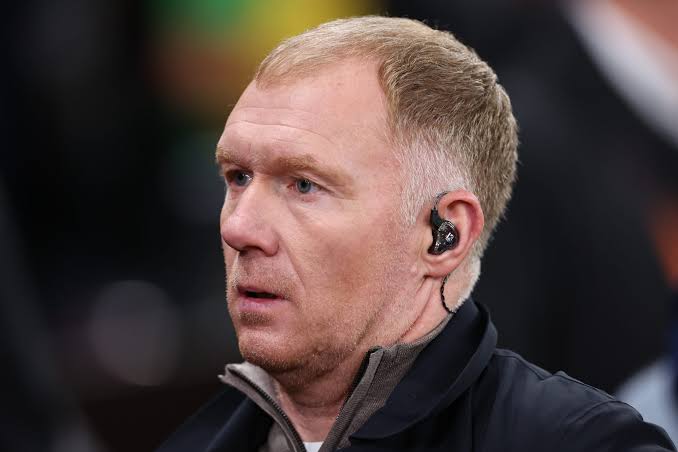MANCHESTER, England — Paul Scholes, the Manchester United legend whose incisive passing anchored a dynasty, has delivered a blistering assessment of the current squad, declaring them short on aggression, speed, and the elite caliber needed to execute Ruben Amorim’s demanding 3-4-3 system. Speaking on his podcast The Good, The Bad and The Football and Sky Sports before the international break, Scholes targeted captain Bruno Fernandes’ struggles in a deeper midfield role, arguing that the Portuguese star’s lack of stamina exposes systemic flaws. This critique, layered atop United’s 3-0 derby thrashing by Manchester City and Amorim’s raw admission of “hating” his players on bad days, has intensified scrutiny on whether the squad or the manager’s rigid tactics bear the brunt of the blame.
Scholes was unequivocal: “Forget the system. The players are just not at the level that Manchester United need. They’re not aggressive enough, they’re not quick enough, they’ve not got the legs in midfield.” His sharpest barbs were reserved for Fernandes, United’s creative linchpin with 15 goals and 13 assists last season. “They’re playing two in midfield, Bruno in there, and he hasn’t got the legs to do it in a three let alone a two,” Scholes told Sky Sports, highlighting Fernandes’ discomfort in a deeper role to accommodate summer signings like Matheus Cunha and Bryan Mbeumo. Data from The Athletic shows Fernandes dropping 10-15 yards deeper this season, stifling his output: two assists in four league games, zero goal contributions in the City rout, and no touches in the opposition box at the Etihad. Scholes, an 11-time Premier League champion, insisted Fernandes belongs as a No. 10, not a makeshift central midfielder. “He is the most creative player on the team, he should be playing as the No 10, there is no doubt about that,” he said. “But he is being asked to do something different… It’s normal for a No 10 like he is to be able to do it for two or three games.”
The critique underscores a broader issue: United’s £236 million summer spending prioritized attacking flair over midfield steel. Cunha (£62.5m from Wolves), Mbeumo (£70m from Brentford), and Benjamin Šeško (£55m from RB Leipzig) were signed to fuel Amorim’s high-pressing, transition-heavy vision, but the failure to land a dynamic central midfielder — Scholes called it a “criminal offence” — has left the engine room vulnerable. United explored moves for Brighton’s Carlos Baleba and Crystal Palace’s Adam Wharton but deemed Casemiro, Manuel Ugarte, Kobbie Mainoo, and Fernandes sufficient. Yet, Scholes argued on The Overlap Fan Debate that pairings like Casemiro-Fernandes lack cohesion, with the 33-year-old Brazilian, past his Real Madrid prime, unable to cover Fernandes’ forward runs. The City loss laid this bare: Phil Foden’s opener exploited a static midfield, while Erling Haaland’s brace fed on turnovers. “Fernandes for me, he’s someone who fills in as a midfielder — he might get away with it for one, two or three games,” Scholes noted.
Nicky Butt, another United icon, echoed this on BBC Radio 5 Live’s Monday Night Club, branding the squad “just not at the level” for top-four contention. “Everyone knows how Manchester United are going to play,” Butt said, pointing to predictable, direct attacks yielding low-quality chances (0.09 xG per shot, per analysts). United fired over 50 shots across three games against Arsenal and Fulham but scored just four goals, exposing their blunt edge. Both Butt and Scholes urged Amorim to adapt, with Scholes warning: “He cannot carry on playing this way, he just can’t.” This clashes with Amorim’s post-derby defiance: “I like my system… We need to understand that we should always be on this level of effort.”
Tensions are simmering in the dressing room. The Athletic reports players “losing faith” in Amorim’s system, with Fernandes, a vocal supporter, reportedly frustrated in his deeper role. Ugarte, a standout under Amorim at Sporting CP, has been underused, fueling Scholes’ suspicion that the manager dislikes certain midfield combinations like Ugarte-Mainoo. Wayne Rooney, on Sky Sports, agreed: “The problem with this system is having two in midfield… Bruno is fantastic, but they’ve got worse.” ESPN has even suggested selling Fernandes to fund a mobile midfielder like Baleba, arguing his 38 goal involvements last season mask incompatibilities with Casemiro, Ugarte, and Mainoo’s shared lack of pace.
Despite the gloom, United’s metrics offer glimmers of hope: they lead the league in shots (18.5 per game, per Opta), and their aggressive press forced City errors before fatigue struck. Tactical analysts on X praise the “physicality edge” but lament the lack of central progression, with attacks leaning heavily on wide overloads and low-xG shots. Fan sentiment on X is split: @AmorimEra_ boosted Scholes’ clip to 6,500 likes, while @UnitedStandMUFC questioned if Amorim will “take the fall” for recruitment missteps.
INEOS, led by Sir Jim Ratcliffe, backs Amorim as the “long-term architect” despite his 26% win rate across 31 Premier League games. CEO Omar Berrada and director Jason Wilcox support the Portuguese, who plans routine talks with the hierarchy during the break. But with no European football, an early Carabao Cup exit to Grimsby Town, and United’s worst start since 1992, pressure is mounting. Scholes, reflecting on Sir Alex Ferguson’s adaptability, remains “more hopeful than confident,” urging Amorim to tweak his approach. At the Etihad, where left wing-back Patrick Dorgu out-touched Fernandes in City’s box (12 vs. 0), the problems were stark: a squad lacking elite aggression, a star miscast, and a system demanding more than it gets. As Amorim navigates this storm, only results — gritty, dynamic, and clinical — will quiet the echoes of United’s storied past.
